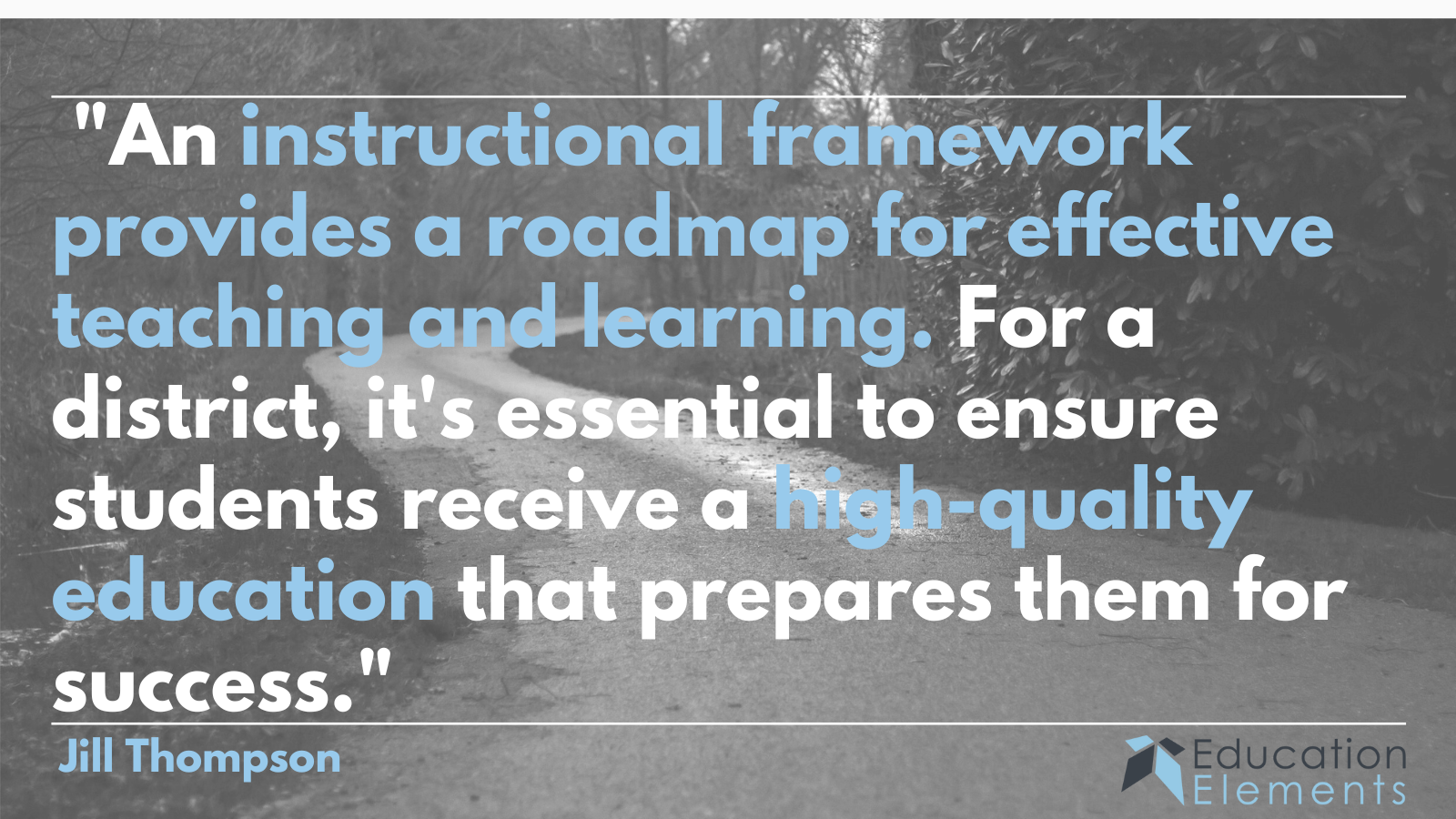Imagine a school district as a ship navigating the vast and ever-changing ocean of education. Just as sailors rely on the North Star to navigate across uncharted waters, school districts can best stay on course with their own guiding light, an instructional framework.
What is an instructional framework?
An instructional framework is more than a set of guidelines: it’s a shared understanding and commitment to educational goals and principles that guide instruction and learning within a district. It provides all leaders and educators with a shared understanding of what the district is trying to achieve academically and a plan for how to get there. School districts guided by Instructional Frameworks no longer waver in response to the uncharted waters of passing trends and the changing currents of new initiatives, as their efforts are firmly rooted in a shared vision of effective instruction.
Benefits of an instructional framework
There are many reasons instructional frameworks are beneficial to districts. They provide alignment around critical goals, which can positively impact teachers, students, parents, and the community:
-
Instructional consistency: Instructional frameworks ensure consistency in teaching practices across grade levels and subjects by providing guidance and alignment with the district’s academic goals.
-
Improved student achievement: Instructional frameworks promote a culture of continuous improvement, fostering a culture of working towards improved student achievement. These clear learning pathways guide educators to scaffold their instruction more effectively and can help them use data to tailor their instruction to their students’ specific needs.
-
Support for professional development: Instructional frameworks provide educators with a common language and approach, making it simpler to collaborate, share best practices, and support one another in their professional growth.
-
Enhanced parent and community engagement: An effective instructional framework contributes to increased parent and community involvement. The transparency provided around goals fosters a partnership between home and school, allowing for easier communication and enhanced parent involvement.

Guiding your district towards high-quality instruction
An Instructional Framework provides a roadmap for effective teaching and learning. For a district, it’s an essential tool to ensure students receive a high-quality education that prepares them for success. In our work at Education Elements, we’ve created a phased approach to developing personalized instructional frameworks for districts. First, we work to understand the current state, align on goals. Then we collaborate with the district team to develop the instructional framework, plan for its implementation. One of the key factors we focus on when developing the frameworks is the importance of high-quality instruction. Our experience shows us that it is critical to achieving the desired student learning outcomes.
Just as sailors trust the North Star to lead them home, leaders, educators, families, and students can trust an instructional framework to guide them towards a brighter future in education with direction and purpose.
Ready to get started? Speak with one of our experts about how to build and implement your instructional framework.





